Education
Conference inspires local Indigenous youth to become future leaders
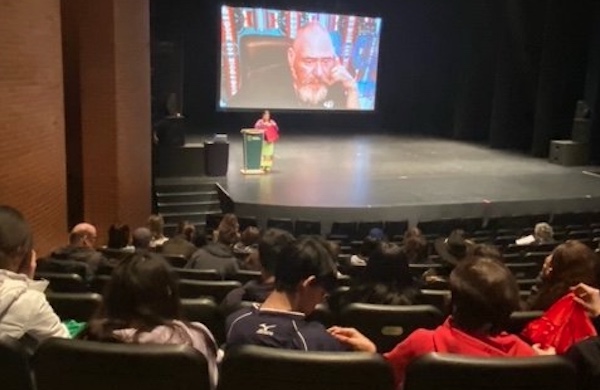
More than one hundred Indigenous youth from Red Deer Public Schools and Red Deer Catholic Regional Schools took part in a conference that allowed them to learn, connect, and be inspired by Indigenous leaders in their community.
The Inspiring Success Youth Conference, sponsored by We Matters, took place on May 10 at Red Deer Polytechnic.
Grade 8 students from across both school divisions had the opportunity to meet new friends who they will attend high school with, reconnect with peers in their current school, and build a deeper sense of strength, belonging, identity, and pride in their Indigenous heritage.
“We were very excited to bring this opportunity to Indigenous youth in Grade 8,” said Hayley Christen, Learning Services Coordinator with Red Deer Public Schools. “It was an excellent opportunity for them to meet new friends and connect with other Indigenous youth in Central Alberta. We wanted the young people to know they are not alone and we also hope the connections they make today will carry forward when they go on to high school. This was a fun, engaging, and meaningful day for all the youth involved!”
Throughout the day, youth were able to participate in 10 different sessions that included topics on goal setting, student success, resilience, Reconciliation, and Indigenous games, along with the opportunity to hear the personal journeys of several Indigenous mentors and leaders.
“This conference has been a beautiful event for the students to witness firsthand the success of other Indigenous people in the local community and come together to connect with Indigenous Grade 8 students,” said Selena Frizzley, Coordinator of Indigenous Education Services with Red Deer Catholic Regional Schools. “We had students attend from Rocky Mountain House, Olds, Innisfail and Red Deer. Students left feeling empowered and hopeful after gaining traditional teachings from Elders and Knowledge Keepers.”
“We were thrilled to collaborate with Red Deer Public and Catholic School Divisions, in conjunction with several community groups, to host central Alberta Indigenous youth for Inspiring Success Youth Conference at Red Deer Polytechnic,” said Kylie Thomas, Red Deer Polytechnic Vice President, Academic and Provost. “We are extremely proud of the leadership roles that RDP Indigenous learners, including keynote speaker Logan Beauchamp, and Polytechnic staff assumed throughout the planning and delivery of this impactful conference. The collective efforts from all partners has helped to inspire Indigenous youth both in and out of the classroom.”
“This conference was a way to introduce Indigenous youth to positive role models from their own community. It was also a great way to introduce these youth to more aspects of our cultures, something that a lot of Indigenous youth feel disconnected from,” said Logan Beauchamp, Ambassador of Hope with We Matters. “As well, we were able to highlight some resources and organizations that are doing great things in our community that these youth can access. Most importantly, this conference was hopefully able to help these youth create their own definition of success and help them envision and plan how they can get there”
Alberta
Parents in every province—not just Alberta—deserve as much school choice as possible

From the Fraser Institute
Not only does Alberta have a fully funded separate (Catholic) school system, it also provides between 60 and 70 per cent operational funding to accredited independent schools. In addition, Alberta is the only province in Canada to allow fully funded charter schools. And Alberta subsidizes homeschooling parents.
This week, the Smith government in Alberta will likely pass Bill 27, which requires schools to get signed permission from parents or guardians prior to any lessons on human sexuality, gender identity or sexual orientation.
It’s a sensible move. The government is proactively ensuring that students are in these classes because their parents want them there. Given the sensitive nature of these topics, for everyone’s sake it makes sense to ensure parental buy-in at the outset.
Unfortunately, many school trustees don’t agree. A recent resolution passed by the Alberta School Boards Association (ASBA) calls on the Smith government to maintain the status quo where parents are assumed to have opted in to these lessons unless they contact the school and opt their children out. Apparently, the ASBA thinks parents can’t be trusted to make the right decisions for their children on this issue.
This ASBA resolution is, in fact, a good example of the reflexive opposition by government school trustees to parental rights. They don’t want parents to take control of their children’s education, especially in sensitive areas. Fortunately, the Alberta government rebuffed ASBA’s demands and this attempt to abolish Bill 27 will likely fall on deaf ears.
However, there’s an even better safeguard available to Alberta parents—school choice. Out of all Canadian provinces, Alberta offers the most school choice. Not only does Alberta have a fully funded separate (Catholic) school system, it also provides between 60 and 70 per cent operational funding to accredited independent schools. In addition, Alberta is the only province in Canada to allow fully funded charter schools. And Alberta subsidizes homeschooling parents. Simply put, parents who are dissatisfied with the government school system have plenty of options—more than parents in any other province. This means Alberta parents can vote with their feet.
Things are quite different in other parts of the country. For example, Ontario and the four Atlantic provinces do not allow any provincial funding to follow students to independent schools. In other words, parents in these provinces who choose an independent school must pay the full cost themselves—while still paying taxes that fund government schools. And no province other than Alberta allows charter schools.
This is why it’s important to give parents as much school choice as possible. Given the tendency of government school boards to remove choices from parents, it’s important that all parents, including those with limited means, have other options available for their children.
Imagine if the owners of a large grocery store tried to impose their dietary preferences by removing all meat products and telling customers that the only way they could purchase meat is to make a special order. What would happen in that scenario? It depends on what other options are available. If this was the only grocery store in the community, customers would have no choice but to comply. However, if there were other stores, customers could simply shop elsewhere. Choice empowers people and limits the ability of one company to limit the choices of people who live in the community.
Think of government school boards as a monopolistic service provider like a grocery store. They often do everything possible to prevent parents from going anywhere else for their children’s education. Trusting them to do what’s best for parents and children is like assuming that the owners of a grocery store would always put the interests of their customers first and not their own self-interest. Monopolies are bad in the private sector and they’re bad in the education sector, too.
Clearly, it makes sense to require schools to get proactive consent from parents. This ensures maximum buy-in from parents for whatever courses their children take. It’s also important that Alberta remains a bastion of school choice. By making it easier for parents to choose from a variety of education options, Alberta puts power in the hands of parents, exactly where it belongs. Parents in other provinces should want that same power, too.
Alberta
Province investing in support for financial literacy in schools
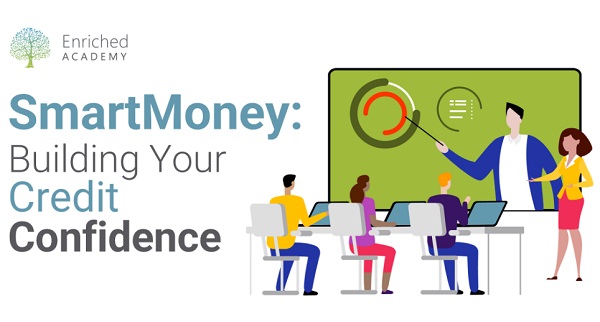
Financial literacy prepares students for their futures
Students across Alberta will build the fundamental life skills they need to grow into adulthood through support for financial literacy programming.
Saving, budgeting, investing and the ability to make wise financial decisions are fundamental life skills Alberta’s youth need to develop as they grow into adulthood. Alberta’s government is ensuring that students have every opportunity to develop these fundamental life skills by integrating financial literacy into the K-12 curriculum and providing grant funding to three Canadian organizations to offer dedicated financial learning resources for students and teachers.
“We are proud to support financial literacy programming for students. Our on-going support for financial literacy education will help young Albertans navigate their futures with confidence by helping them build the fundamental life skills they need to prosper and secure their futures in today’s fast-moving world.”
In May 2022, Alberta’s government invested $5 million over three years into financial literacy programming to ensure students have the financial knowledge they need to thrive in life. Enriched Academy receives $900,000 per year and the Canadian Foundation for Economic Education receives $500,000 per year to provide students in grades 5 to 12 with financial literacy programming, aligned with the curriculum, to improve their financial knowledge. In addition, Junior Achievement receives $250,000 per year to provide hands-on, experiential financial literacy, work readiness and entrepreneurship education to students in kindergarten to Grade 6.
“Our support for financial literacy programming will set Alberta’s youth up for success. This programming will ensure that Alberta’s youth develop the fundamental life skills they need to manage their personal finances, make sound financial decisions, and grow into adulthood with confidence.”
Free financial literacy webinar
Some of the funding provided will support Enriched Academy hosting a free live webinar for grades 4 to 12 students and teachers on Tuesday, November 26, as part of their financial literacy programming. The webinar will teach students how to build their credit with confidence and will feature an interactive gameshow format to engage and motivate students to learn how credit works and how to manage credit and their personal finances with confidence. Students and teachers who are interested in participating can register for the webinar online.
“Our partnership with the Government of Alberta has enabled us to deliver transformational financial literacy education to nearly six hundred thousand students across the province. As a high school teacher, I’ve witnessed firsthand how financial literacy education empowers students, increasing their confidence in money management and preparing them to be financially responsible. Investments in financial literacy are investments in our students’ futures, and I’m already seeing it pay dividends for Alberta students.”
Teachers can also access lesson plans, activities, and interactive tools from all three organizations’ websites to support financial literacy learning outcomes in Alberta’s curriculum.
Quick facts
- Financial literacy programming offered by the three organizations reaches more than 350,000 students annually.
- Alberta’s renewed K-6 curriculum includes an increased emphasis on financial literacy skills, as well as a stronger foundation in financial literacy in all grades.
Related information
-

 Economy2 days ago
Economy2 days agoThe White Pill: Big Government Can Be Defeated (Just Ask the Soviet Union)
-

 Brownstone Institute2 days ago
Brownstone Institute2 days agoA Potpourri of the World’s Unexposed Scandals
-
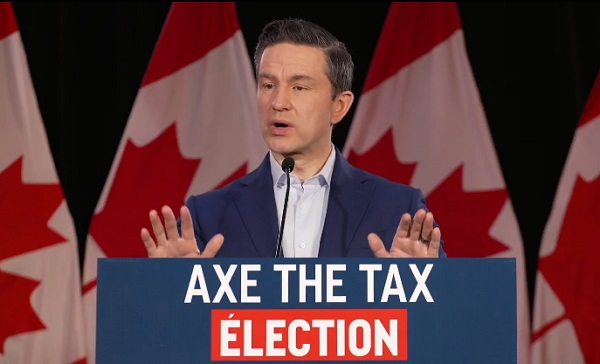
 National2 days ago
National2 days agoAs Trudeau’s government teeters, Pierre Poilievre pushes for immediate election call
-

 COVID-192 days ago
COVID-192 days agoDrug store to pay $10k to Canadian woman denied prescription over COVID mask dispute
-
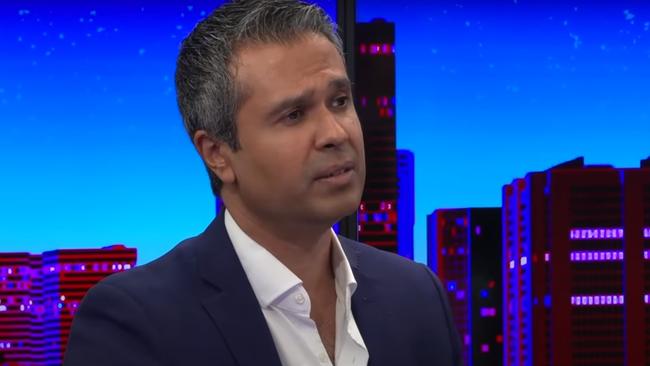
 COVID-191 day ago
COVID-191 day agoEsteemed UK Doctor pleads with governments to cancel COVID-19 vaccines
-
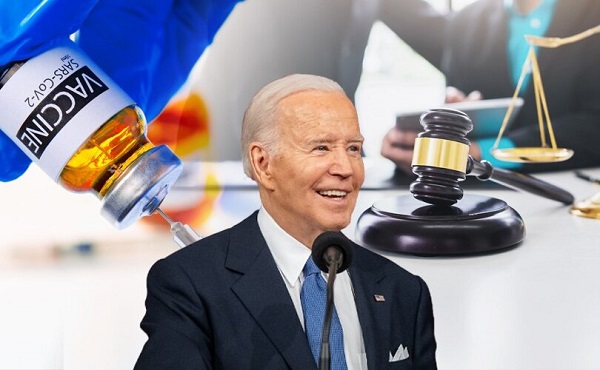
 COVID-192 days ago
COVID-192 days agoBiden HHS extends immunity for COVID shot manufacturers through 2029
-
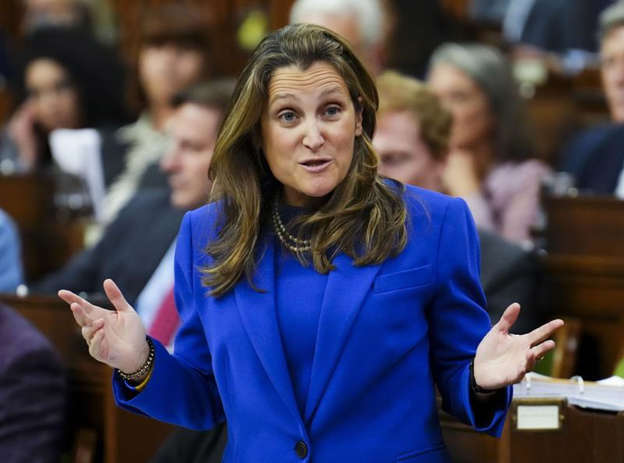
 Business2 days ago
Business2 days agoPublic Accounts of Canada Report Buried on Last Day of Sitting Session
-

 Bruce Dowbiggin2 days ago
Bruce Dowbiggin2 days agoMLB’s Exploding Chequebook: Parity Is Now For Suckers







